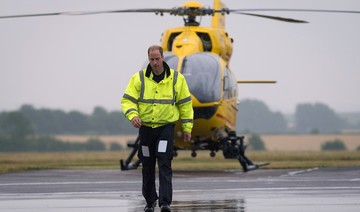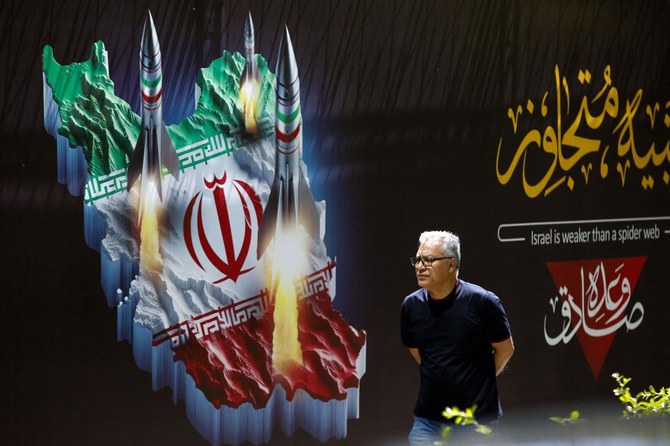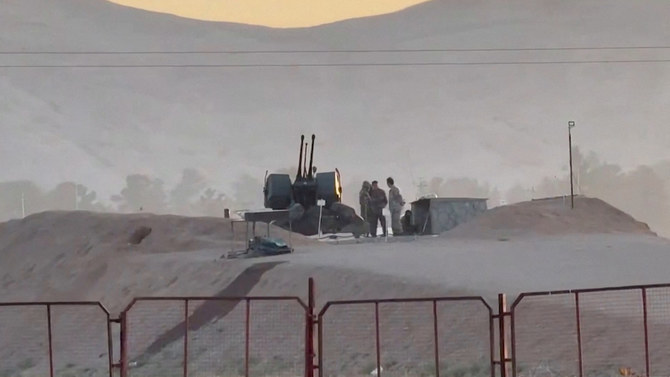JERUSALEM: Prince William will become on Monday the first British royal to pay an official visit to Israel and the Palestinian Territories, 70 years after British forces withdrew from the Holy Land leaving behind the divisions that remain to this day.
Queen Elizabeth’s grandson, 36, and second-in-line to the throne, will travel without his wife Kate or their three children for the three-day visit. He will stay in Jerusalem at the King David hotel, once the headquarters of British authorities, where Jewish militants killed more than 90 people in a bombing in 1946.
Britain captured Palestine from the crumbling Ottoman Empire during World War One in 1917, and later governed it under an international mandate.
William’s visit coincides with the 70th anniversary both of Britain’s exit and of Israel’s independence, which Palestinians mourn as their dispossession.
THE BALFOUR DECLARATION
In November 1917, British Foreign Secretary Arthur James Balfour sent a letter to Baron Rothschild, a prominent leader of Britain’s Jewish community, expressing British support for “a national home for the Jewish people” in Palestine. What became known as the Balfour Declaration also talked of protecting the “civil and religious rights” of non-Jewish communities.
The Balfour Declaration is a milestone for Israelis: the official residence of the prime minister in Jerusalem is on Balfour Street, and the British Library said on Wednesday it is in discussions to lend the document to the Israel Museum.
By contrast, Palestinians accuse the British of signing away land that wasn’t theirs to give, and of colonial double-dealing to seize the Ottoman Empire’s Middle East territories.
THE BRITISH MANDATE OF PALESTINE
In 1922 the League of Nations awarded Britain the Palestine Mandate, endorsing the Balfour Declaration. The next quarter century was marred by fighting in Palestine between Arabs and Jews. Both communities also clashed with British troops.
For survivors of the genocide of six million European Jews in the Holocaust, the creation of a state of their own in the Holy Land took on new urgency after World War Two.
The final years of British rule were marked by intensifying clashes between Jewish and Arab forces. When militants from the underground Jewish Irgun group bombed the King David Hotel in July 1946, the dead included both Arab and Jewish staff as well as 28 British citizens. In 1947, the UN General Assembly voted in favor of a plan to partition Palestine into an Arab state and a Jewish state. Arab representatives rejected the plan.
Israel declared independence on May 14, 1948, the day before the end of British rule. Hundreds of thousands of Arabs fled or were driven from their homes, and millions of their descendants remain stateless refugees to this day.
ANCIENT TIES
According to some traditions, England’s patron saint, St. George, is buried in Lydda, now the Israeli town of Lod, near Tel Aviv. Prince William is expected to visit St. George’s Cathedral in Jerusalem, among other religious sites.
In the 12th century, King Richard I of England, known as Richard the Lionheart, led the Third Crusade to the Holy Land, where he fought the Muslim leader Saladin. A peace treaty left Jerusalem under Muslim control, but allowed Christians to enter.
In the Victorian era, the Holy Land drew British scholars, archaeologists, explorers, cartographers, tourists and missionaries. Its importance to Britain became much more pronounced with the opening of the Suez Canal in the late 19th century, and the discovery of oil in Iraq, piped from Mosul to the Mediterranean via Haifa.
WHY IS PRINCE WILLIAM MAKING THE TRIP?
William’s visit is at the behest of the British government. Until now it had been British policy not to make an official royal trip until the Israeli-Palestinian conflict is resolved. William’s tour comes at a time of diplomatic upheaval in the region, after US President Donald Trump’s decision to recognize Jerusalem as the capital of Israel and move the US Embassy there. The prince’s communications secretary, Jason Knauf, said the visit would be non-political, allowing “a spotlight to be brought to bear on the people of the region: their cultures, their young people, their aspirations, and their experiences.”
WHAT WILL THE TRIP INCLUDE?
William will meet Israeli Prime Minister Benjamin Netanyahu and Palestinian President Mahmoud Abbas. He will also visit religious sites, Israel’s Yad Vashem memorial to the Holocaust dead, and the tomb of his great-grandmother Princess Alice, who hid a Jewish family in her residence in Greece during World War Two and is buried in the Garden of Gethsemane.
Other members of the royal family have made unofficial visits. Prince Charles, William’s father, attended the funerals of Israeli statesmen Yitzhak Rabin and Shimon Peres. In 1994 Prince Philip, William’s grandfather, attended a ceremony at Yad Vashem honoring his mother, Princess Alice.






















